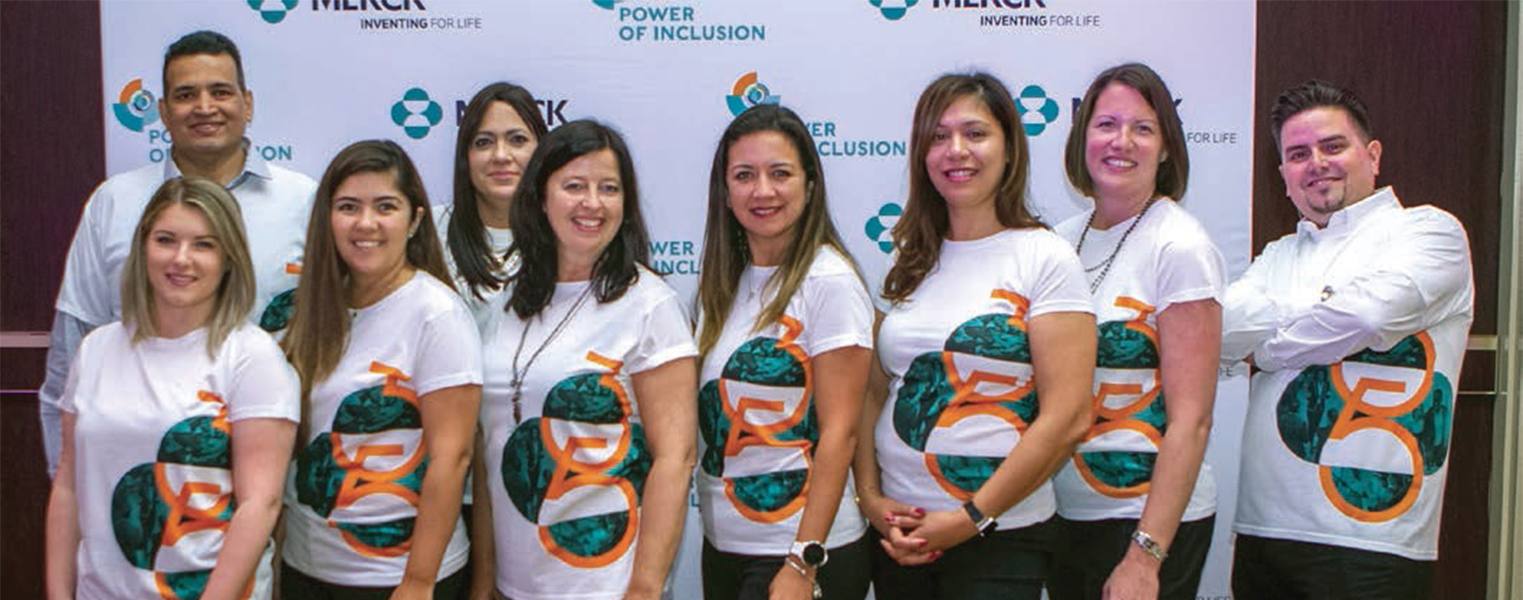MERCK & CO. 2019 Economic Impact Summit—Supplier Diversity: More Than Counting The Spend
At Merck, the commitment to innovation and invention extends to the company’s expectations built from its dedication to supplier diversity.
One message was made clear at the fourth annual Economic Impact Summit hosted in November by global biopharmaceutical company Merck & Co.: Supplier diversity is not about counting the spend, it’s about making the spend count And when that spend surpasses $2 billion, as it did in 2018, making it count in terms of innovation, environmental sustainability and economic development is serious business.
“When it comes to diversity and inclusion, what’s important to us at Merck is not only the economic inclusion and supplier diversity process, it’s about having an economic impact,” said Senior Vice President and Chief Procurement Officer Quentin Roach, who opened the two-day summit “It’s about impacting the communities in which we live and work every day, and using our work, our spend and our engagement with the supplier community to help foster growth in those communities. It’s also about innovation and invention, which is what our company is all about”.

The Economic Impact Summit, which is designed to promote networking, professional education and Tier 2 contracting opportunities, involved 200 current and prospective diverse suppliers and more than 80 Merck procurement representatives from its four main lines of business: prescription medicines, vaccines, biologic therapies and animal health products. It included matchmaking sessions involving 21 prime suppliers and 150 potential Tier 2 suppliers and panels featuring representatives from 10 diversity and inclusion advocacy partner organizations.

The annual Power of Inclusion awards dinner, a highlight of the summit, recognized Merck’s 2019 Diverse Supplier of the Year: The BlocPartners, an international network of 18 health creative and medical communications agencies operating in 29 major and emerging markets. Best-selling author Susan L. Taylor, founder and CEO of the National CARES Mentoring Movement and editor-in-chief emerita of “Essence” magazine, keynoted the event.

Driving the business of innovation
The $42 billion company has a global and sometimes complex perspective of innovation. For example:
• Given the close connection between animal health and humans, the “science of healthier animals” has become a high-growth market for Merck. Demand for the company’s innovations in the sector—vaccines, parasiticides and disease prevention medicines for household pets, as well as livestock, fish and poultry—is forecast to double animal health product sales during the next four years.

• With sustainability now a critical global imperative, Merck will be expecting its major suppliers to adopt sustainable development goals for water and greenhouse gases by 2025. Providers meeting the company’s requirements for “green suppliers” certification will rank as preferred vendors.

• Unless they’re certified as service-disabled, most diverse suppliers aren’t focused on disabilities. Yet, an estimated 25% of American workers have a cognitive or physical disability that, in most cases, can’t be easily recognized. They are, nonetheless, making valuable contributions to the workforce and helping drive innovation. It’s why Merck is actively incorporating universal design, which goes beyond the Americans with Disabilities Act, to ensure its facilities and technology and those of its suppliers are accessible.


• Merck is working with the Billion Dollar Roundtable to redefine how capital can spur the development of diverse businesses. The Roundtable’s “triad” initiative supports corporations’ diverse supplier goals using three strategies: 1) providing M/WBEs and diverse-owned businesses with the capacity-building capital to grow their businesses, 2) opportunistically converting non-M/WBE businesses into minority enterprises, and 3) divesting corporate assets that can be converted into M/WBE or diverse-owned businesses.


Working with Merck
Four members of Merck’s supplier management leadership team offered their advice on how suppliers can best work with the company:


• Dale Huff, associate vice president of Supplier Development and Performance Management—About one-third of Merck’s supplier issues are caused by a gap in what it wants and what suppliers think the company wants. Challenge Merck stakeholders to identify what matters and ensure the right requirements are established up front.


• Denise Powell, executive director of Research & Development Procurement—Focus on quality, technical capabilities and innovation. Be more than just a supplier by understanding where your company’s strategy intersects with Merck’s. Be willing to take on smaller projects as a way to show value.


• Curtis Scott, vice president of Direct Manufacturing Procurement—Know what your company is and what it isn’t, stay within your lane and perform. Don’t pass up opportunities to introduce your innovation. Demand feedback about your performance.

• Susanna Webber, vice president of Indirect Procurement—From finance, human resources and legal to marketing, travel and payment processing, there’s a huge opportunity to transform how Merck operates globally on a daily basis. It starts by building the right relationships and understanding who Merck is and what it needs and who you are as an organization,
FOR MORE INFORMATION










